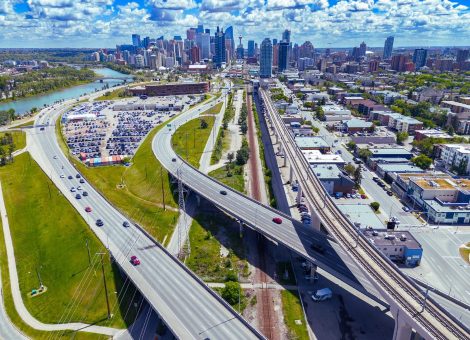Why fuel price increases are disrupting UK fuel retail businesses
 Fuel prices have risen dramatically over the past few months due to a combination of COVID, global fuel supply issues, and the wider impact of the war in Ukraine with many forecourts in the UK seeing record increases in fuel costs.
Fuel prices have risen dramatically over the past few months due to a combination of COVID, global fuel supply issues, and the wider impact of the war in Ukraine with many forecourts in the UK seeing record increases in fuel costs.
Tom Hatton, Head of Product Management (Fuel Pricing) looks at the disruptions that fuel retailers are experiencing to their businesses and why further increases in the fuel price could even put the future of independently-run fuel retailers in doubt.
Retailers are being unfairly blamed for fuel prices skyrocketing and whilst there are reports of individual sites increasing prices excessively, this is absolutely the exception and not the rule.
The UK fuel market has some interesting characteristics – approximately 50% of the fuel is sold at a particularly low margin by supermarkets (to drive store footfall), and up to 66% of forecourts in the UK are owned by independents.
This means that the UK has a very competitive fuel retail market with conditions that ultimately benefit the consumer, and therefore if trading conditions were to get harder for retailers it’s likely only going to impact consumers in the long run.
Fuel retailers are facing major disruptions to their businesses. Demand for fuel is extremely volatile and generally declining, operating costs are increasing, and wholesale fuel costs are climbing at previously unseen levels.
In recent years, many fuel retailers reimagined their businesses during the pandemic by improving their convenience offerings and subsequently taking on higher operating costs.
They are therefore now facing more acute issues than they did even in 2008 – when fuel prices last climbed so sharply – as the global economy did not experience such high rates of inflation and a subsequent cost of living crisis.
If a sizeable number of the independents were to go out of business, this would undoubtedly affect price competitiveness at the retail end of the supply chain.
The bottom line is that fuel is not expensive due to retailers’ pricing tactics, rather fuel is currently expensive because of two driving factors: the tax structure (accounting for ~46% of the price)* and the formulaic nature of oil pricing (also accounting for ~46% of the price)*.
Unfortunately, fuel prices could continue to rise over the coming months, and for there to be an improvement in consumer conditions, the most immediate and impactful lever to pull would be to review the tax structures (particularly VAT on fuel) and not retailers’ margins.
For more information about the composition of petrol prices, please visit https://www.racfoundation.org/data/uk-daily-fuel-table-with-breakdown
Read more articles about:
Fuel pricingSubscribe and get the latest updates
You may unsubscribe from our mailing list at any time. To understand how and why we process your data, please see our Privacy & Cookies Policy
Related Resources
Fuel pricing
November 2025. Kalibrate's Canadian Petroleum Price Snapshot
Kalibrate conducts a daily survey of retail gasoline, diesel, propane, and furnace fuel prices in 77 Canadian cities....

Fuel pricing
October 2025. Kalibrate's Canadian Petroleum Price Snapshot
Kalibrate conducts a daily survey of retail gasoline, diesel, propane, and furnace fuel prices in 77 Canadian cities....

